SUMMARY
This is AI generated summarization, which may have errors. For context, always refer to the full article.
![[ANALYSIS] The sharp power challenge: Defending PH from within](https://www.rappler.com/tachyon/2024/03/sharp-power-challenge-march-5-2024.jpg)
A study conducted by the Ateneo Policy Center, with the support of the Konrad Adenauer Stiftung, posits that Beijing has stepped up its acts of political warfare against the Philippines. This may be in response to the Marcos administration’s foreign policy and national security posture in the West Philippine Sea (WPS).
Kerry K. Gershaneck defines political warfare as, “The strategic utilization of all available resources and tactics by a nation, except direct military engagement, in order to attain its desired national goals. These activities encompass both overt and covert actions.”
In this type of “war,” the Chinese Communist Party’s (CCP) United Front Work Department takes the lead in Beijing’s efforts to exert influence abroad. Its work is complemented by the Chinese People’s Association for Friendship with Foreign Countries, which is tasked to assimilate with local government units of other countries through bilateral engagements.
Political warfare covers a broad spectrum of activities, which can be discerned through six vectors:
- the conduct of economic and psychological warfare and coercion;
- the shaping of global opinion favorable to China;
- the use of economic ties as entry points for its political influence;
- the forging of subnational engagement to circumvent opposition at the national level;
- the export of CCP-defined repression, censorship, and surveillance into other markets; and,
- the fueling of corruption among political elites of developing countries.
The overt aspect of this “war” is the coercive tactics employed by China’s coast guard and militia in the WPS. This is complemented covertly by CCP-directed propaganda and disinformation being spewed by its various “talking heads” in Chinese and domestic media. In addition, Beijing has increasingly curried the favor of some local officials leading to policy debates over stronger strategic partnership with foreign powers.
Attempts to establish foothold in strategic areas such as in the Fuga Island in Cagayan, the Grande and Chiquita Islands in Subic Bay, the Sangley International Airport project in Cavite, and the entry of China Telecom as a partner of DITO in the telecommunications sector likewise offer an articulation of the gamut of Chinese political warfare.
While there are assurances from technical experts, its compromising presence in military camps, and the potential invocation of the CCP’s National Intelligence Law, still raises the potential risks of espionage and data privacy breach. These economic engagements emerged using the Belt and Road Initiative as pretext, which unfortunately include “elements of control, enforcement, and military power […] crucial to China’s overall development.”
What do to?
Political warfare likewise employs the export of surveillance technology, which could be leveraged to create ‘police states’ among democratic societies. The defunct Safe Philippines-CCTV Project is an example. It was originally conceived to be a collaboration between the China International Telecommunications and Construction Corp (CITCC) and the Department of the Interior and Local Government. The project intended to reduce crime by 15% and improve police response time by 24% in the cities of Manila and Davao.
How, then, do we act on this insidious type of security challenges? Foremost, the national government should exercise “adult supervision” over these seemingly harmless economic and socio-cultural engagements surfacing in various sectors of society and at varying levels of the bureaucracy. Perhaps, the following legal interventions could be considered:
First, enact a Foreign Interference Act to protect our domestic politics and electoral process and sanction those who accept funds or other forms of support, particularly if the intent of such transaction harms the country’s national interests and political stability. This should be complemented by the amendment of the antiquated Anti-Espionage Law or Commonwealth Act No. 616 of 1941 while taking into consideration new technologies that can be used to collect intelligence inimical to our national security interests.
Second, review the Foreign Agent Registration Act of 1979 or Batasan Pambansa Bilang 39 (BP 39) and implement it once legal guard rails are provided – measures to help create a legal framework that protects against abuses of power.
Third, reexamine the composition and mandate of the Inter-Agency Investment Promotion Coordination Committee of the Department of Trade and Industry, which was created through Section 4 of the amended Foreign Investment Act (Republic Act 11647) or FIA. The other option is to create a separate Foreign Investment Registration Office to implement Section 24 of the Public Service Act (Republic Act 11659) or PSA.
Fourth, establish a monitoring mechanism to track the acquisition of real estate properties near military camps or coastal areas that have strategic or sensitive value with respect to our concerns in the WPS. This initiative can mitigate security risks posed by foreign powers or their Filipino representatives following such acquisition.
Fifth, designate a senior official as a counter-political warfare coordinator assigned to craft the national strategy and develop an appropriate training program at various levels of the government.
This “war” is a battle for real estate – the entire Philippine archipelago, which the CCP considers as a ‘key terrain feature’ essential to its regional ambition. No less than former President Donald Trump has described the country as a “prime piece of real estate from [a] military standpoint.”
The CCP has conveniently distracted us with its use of hard power at sea, a narrative that has been predominantly spotlighted by mainstream media overshadowing its sharp power maneuvers. While simultaneously, the CCP weaponizes its diplomatic, propaganda, and economic tools of statecraft in attempts to influence our political, economic, and public sphere and subtly compromise us from within. – Rappler.com
Rommel Ong is affiliated with the Ateneo School of Government. Jules Arceo is with the Far Eastern University while Karen Garcia is affiliated with the Ateneo Policy Center of the Ateneo School of Government. The views expressed herein are those of the authors and do not necessarily reflect the views of Ateneo de Manila University.
Add a comment
How does this make you feel?




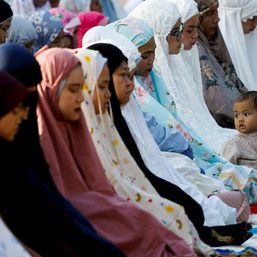
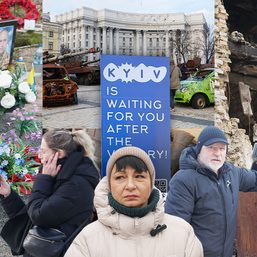
![[OPINION] Expectations for Philippines-US-Japan trilateral cooperation: A view from Japan](https://www.rappler.com/tachyon/2024/04/tl-ph-usa-jp-cooperation.jpg?resize=257%2C257&crop=447px%2C0px%2C1080px%2C1080px)


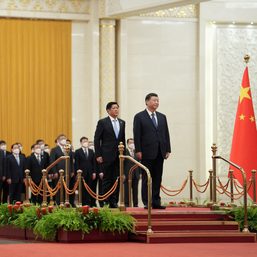




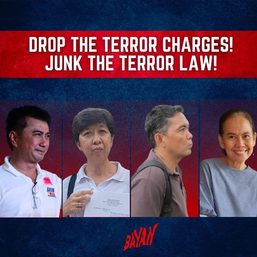
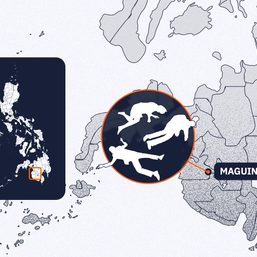



![[Just Saying] SONA 2024: Some disturbing points](https://www.rappler.com/tachyon/2024/07/TL-marcos-sona-points-july-23-2024.jpg?resize=257%2C257&crop=335px%2C0px%2C720px%2C720px)

There are no comments yet. Add your comment to start the conversation.